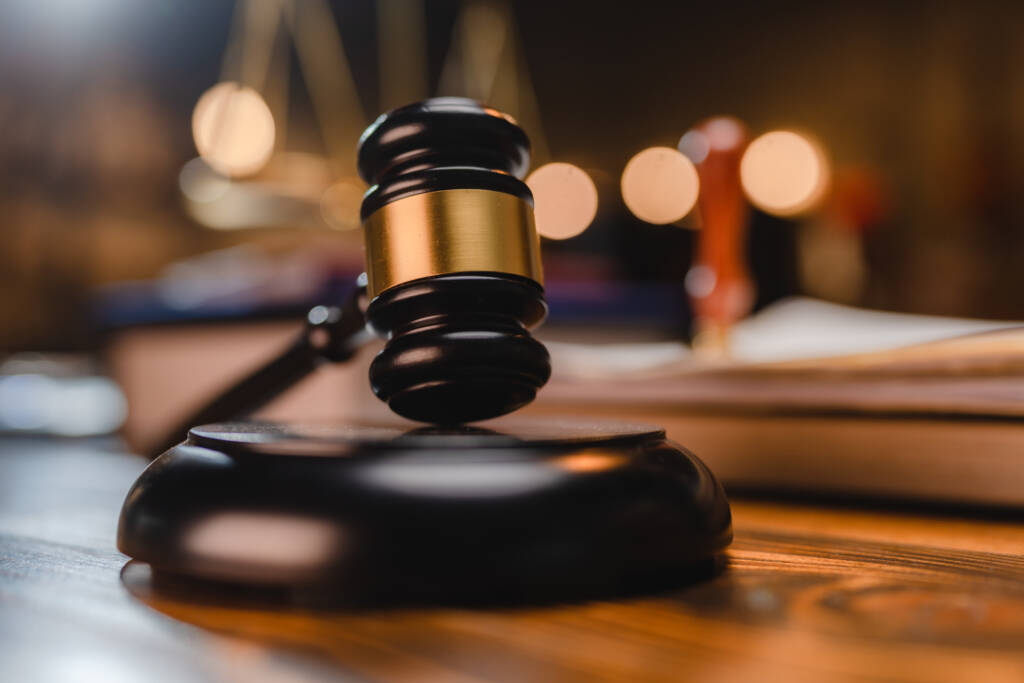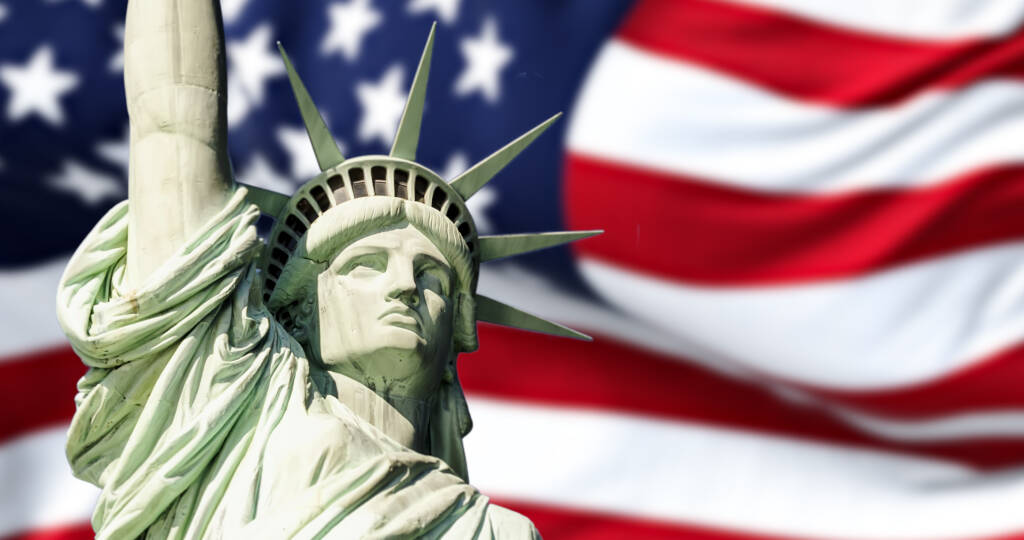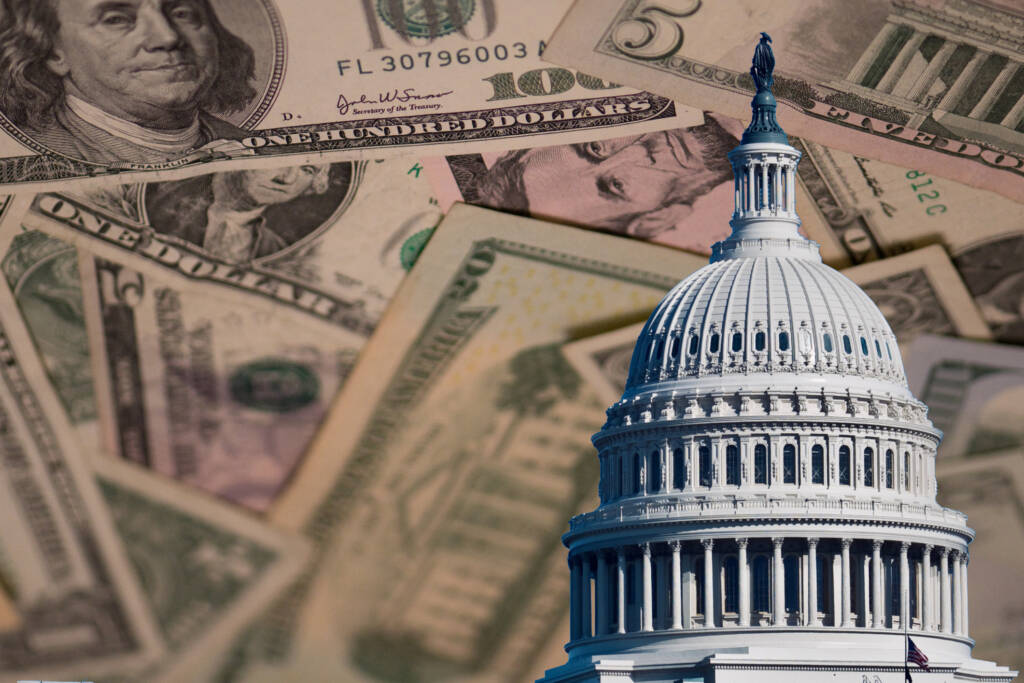
Adult Education U.S. History

The United States began as an experiment in freedom and democracy. Since its establishment, the country and its people have endured social, political and economic revolutions. In this course, students will investigate the people, events and ideas that have shaped the United States from the end of the Civil War through today.
Students are asked to analyze and evaluate decisions made by political, business and military leaders. Emphasis is placed on connections between events of the past and present. This course also gives students the opportunity to conduct research and apply their learning to current, real-world problems.
Cost: Students purchase 28 days of access for $105. Students may work as quickly through the content as they wish. Every 28 days, students may purchase an additional 28 days of access for an additional $105.
Major Topics and Concepts
Segment I:
Module 1: Reconstruction
- 01.00 Module One Pretest
- 01.01 Geography
- 01.02 Set the Stage
- 01.03 Civil War
- 01.04 Rebuilding the Government
- 01.05 A New South
- 01.06 Face of Freedom
- 01.07 Westward Expansion
- 01.08 Review and Discussion-Based Assessment
- 01.09 Module One Exam
- Collaboration Project
- Collaboration Assessment Guide
Module 2: Industrial Revolution
- 02.00 Module Two Pretest
- 02.01 Industrialization Changes America
- 02.02 Innovation Nation
- 02.03 Populism
- 02.04 Coming to America
- 02.05 Rise of the Political Machine
- 02.06 Labor Movements
- 02.07 Social Change
- 02.08 Testing Tips: Analyzing Maps and Images
- 02.09 Review and Discussion-Based Assessment
- 02.10 Module Two Exam
- Collaboration Project
- Collaboration Assessment Guide
Module 3: Enter the World Stage
- 03.00 Module Three Pretest
- 03.01 Isolationism, Intervention, and Imperialism
- 03.02 U.S. Territorial Expansion
- 03.03 The Great War
- 03.04 Preparing for War
- 03.05 New Kind of War
- 03.06 War at Home
- 03.06 War at Home: Honors
- 03.07 Peace, Demobilization, and Next Steps
- 03.08 Testing Tips: Understanding Complexity
- 03.09 Review and Discussion-Based Assessment
- 03.10 Module Three Exam
- Collaboration Project
- Collaboration Assessment Guide
Module 4: Between the Wars
- 04.00 Module Four Pretest
- 04.01 Isolationism
- 04.02 The Roaring Twenties
- 04.03 Cultural Changes of the 1920s
- 04.04 Challenges to Civil Rights
- 04.05 The Great Depression
- 04.06 The New Deal
- 04.06 The New Deal: Honors
- 04.07 Review and Discussion-Based Assessment
- 04.08 Testing Tips: Analyzing Documents
- 04.09 Segment One Exam: Regular
- 04.09 Segment One Exam: Honors
- Collaboration Project
- Collaboration Assessment Guide
Segment II
Module 5: World War II
- 05.00 Module Five Pretest
- 05.01 World War Again
- 05.02 The United States at War
- 05.03 Two Wars
- 05.04 Holocaust
- 05.05 War at Home
- 05.06 War Ends
- 05.07 Testing Tips: Analyzing Images
- 05.08 Review and Discussion-Based Assessment
- 05.09 Module Five Exam
- Collaboration Project
- Collaboration Assessment Guide
Module 6: Post WWII & Cold War
- 06.00 Module Six Pretest
- 06.01 The Fifties and Sixties
- 06.02 The Early Cold War
- 06.03 The Cold War at Home
- 06.04 The Korean War
- 06.05 The Cold War
- 06.05 The Cold War: Honors
- 06.06 Vietnam War
- 06.07 Disillusionment
- 06.08 Testing Tips: Analyzing Maps
- 06.09 Review and Discussion-Based Assessment
- 06.10 Module Six Exam
- Collaboration Project
- Collaboration Assessment Guide
Module 7: Civil Rights Movement
- 07.00 Module Seven Pretest
- 07.01 The Great Society
- 07.02 Peace or Power
- 07.03 Minority Rights
- 07.04 Civil Rights Decisions
- 07.05 Testing Tips: Misconceptions and Timed Testing Strategies
- 07.06 Review and Discussion-Based Assessment
- 07.07 Module Seven Exam
- Collaboration Project
- Collaboration Assessment Guide
Module 8: The Modern Era
- 08.00 Module Eight Pretest
- 08.01 The 1970s
- 08.01 The 1970s: Honors
- 08.02 The 1980s
- 08.03 A New Millennium
- 08.04 Terrorism and Human Rights
- 08.05 Review and Discussion-Based Assessment
- 08.06 Segment Two Exam: Regular
- 08.06 Segment Two Exam: Honors
- Collaboration Project
- Collaboration Assessment Guide
Competencies
Reconstruction and Westward Expansion
Students will demonstrate an understanding of Reconstruction and Westward Expansion by explaining factors that led to the Civil War and Westward Expansion, and describing the impact of government actions on individuals during Reconstruction and Westward Expansion.
The Second Industrial Revolution
Students will demonstrate an understanding of the Second Industrial Revolution by explaining causes of the Second Industrial Revolution, analyzing the resulting social impact of economic expansion in the United States, and summarizing resulting labor and social reform movements.
The Impact of War on Domestic and Foreign Policy
Students will demonstrate an understanding of the impact of war on domestic and foreign policy by describing United States foreign policy before World War I, summarizing the causes of World War I and the impacts of United States participation, and explaining United States domestic policy during World War I.
Impact of the Economy on Cultural Change
Students will demonstrate an understanding of the impact of the economy on cultural change by explaining the impact of economic factors on American culture and society between World War I and World War II, and describing the reflection of American values in cultural trends.
United States Intervention in Foreign Conflict
Students will demonstrate an understanding of the United States’s intervention in foreign conflict by explaining the change in United States foreign policy in response to World War II, describing the United States’s response to the Holocaust, and analyzing the impact of United States foreign policy during World War II.
Containing Communism and Preventing Nuclear Attack
Students will demonstrate an understanding of containing communism and preventing nuclear attack by explaining foreign policy related to the Korean War, describing the consequences of the Cold War for American society, and analyzing American disillusionment during the Vietnam War.
The Civil Rights Movement
Students will demonstrate an understanding of the Civil Rights Movement by describing Civil Rights Movement leaders and methods, summarizing events of the Civil Rights Era, and analyzing the impact of the Civil Rights Movement on marginalized groups.
Challenges of the Modern Era
Students will demonstrate an understanding of the challenges of the Modern Era by analyzing social and environmental issues of the Modern Era.
New Hampshire’s Role in International Diplomacy
Students will demonstrate an understanding of New Hampshire's role in international diplomacy by explaining New Hampshire’s role in events leading to the settlement of the Russo-Japanese War.

